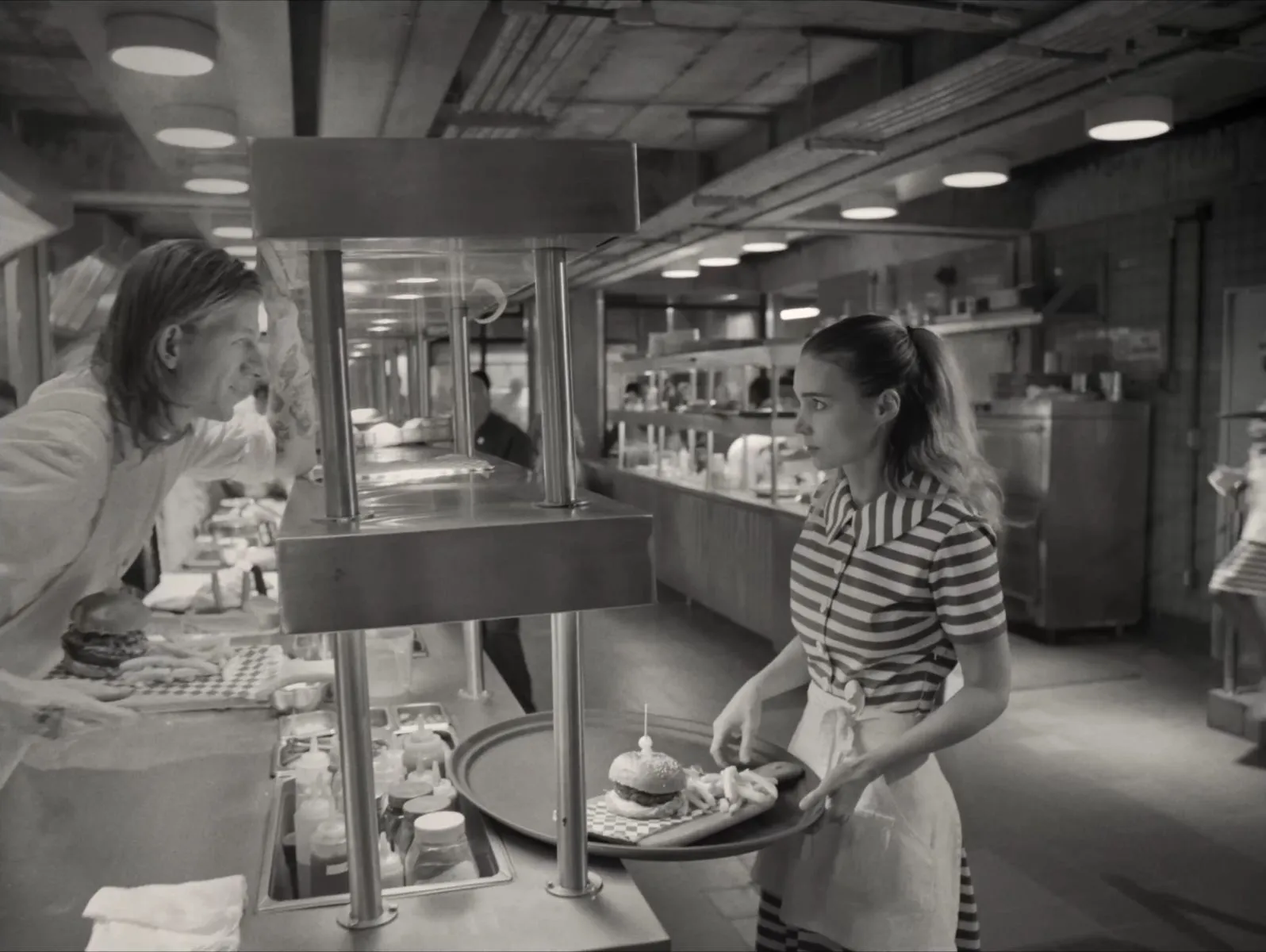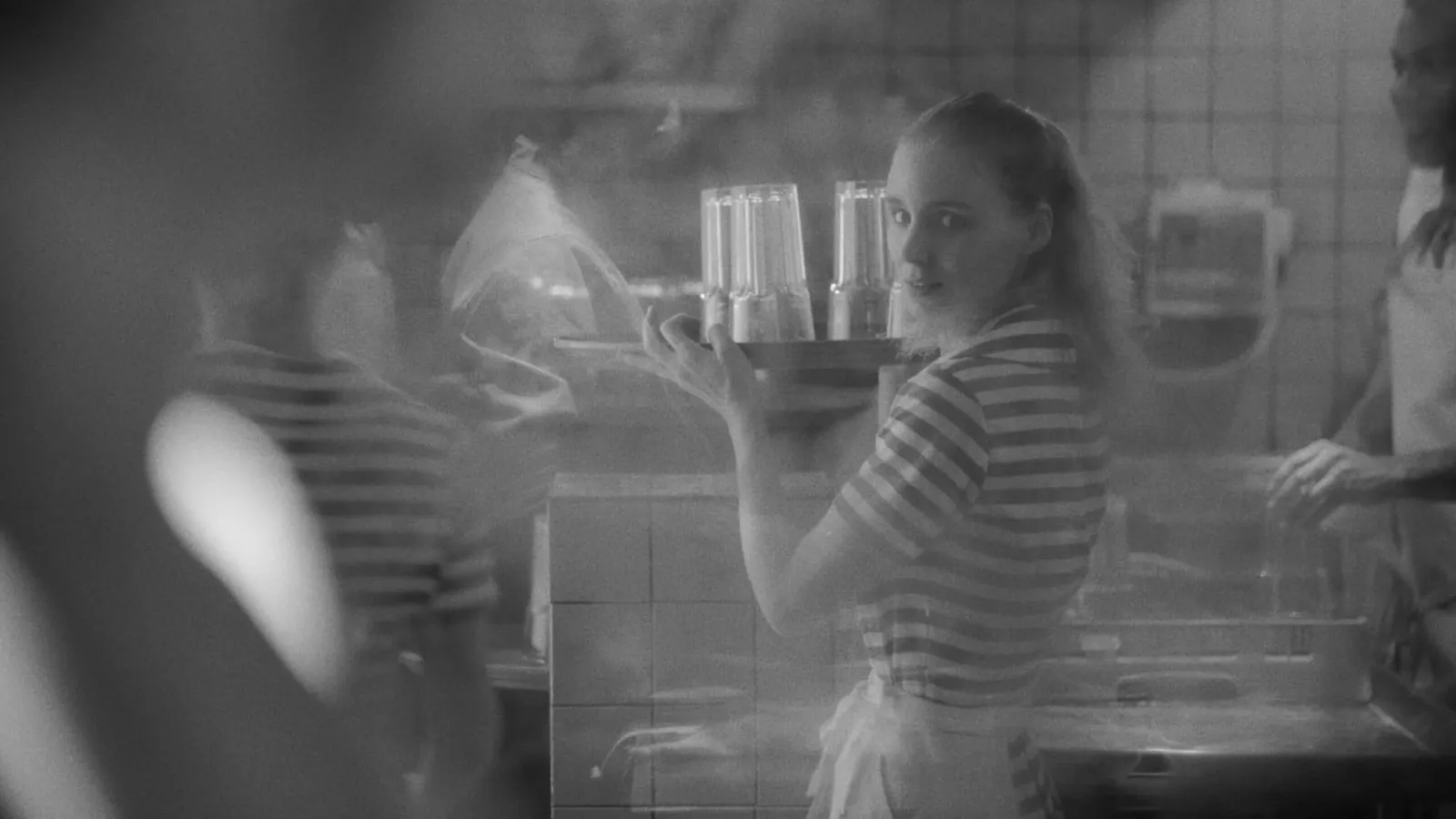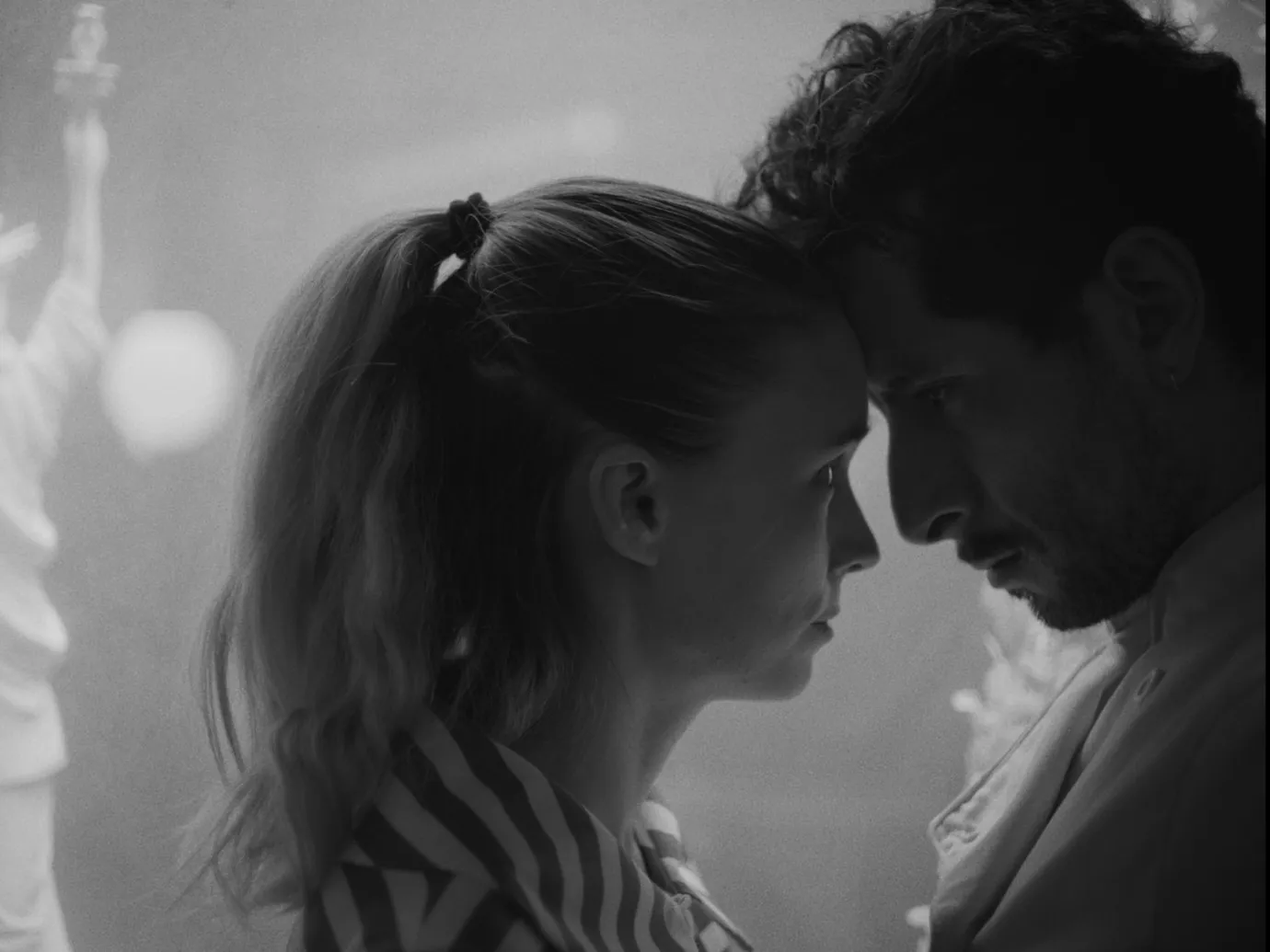The Kitchen: A Pressure Cooker of Dreams and Disillusionment in NYC
Estela (Anna Diaz), a Mexican woman, arrives in New York City without money, documents, or English skills, hoping to find work at The Grill, a restaurant in Times Square. She seeks out Pedro (Raúl Briones), a fellow villager who she believes can help her get a job. Against the odds, Estela lands a position in the kitchen, but her first day turns into a disaster. The restaurant owner, Mr. Rashid (Oded Fehr), is furious after $800 goes missing from the cash register. Meanwhile, Julia (Rooney Mara), a waitress, is pregnant by Pedro and considering an abortion, while Pedro tries to convince her otherwise. Tensions are high in the kitchen.

Rooney Mara as Julia in “The Kitchen”
Alonso Ruizpalacios: From Berlin’s Darling to “The Kitchen”
Mexican director Alonso Ruizpalacios is a favorite of the Berlin International Film Festival. All four of his feature films have been showcased there. “Güeros” was part of the “Panorama” program, while “Museo” and “A Cop Movie” competed in the main competition. Ruizpalacios’s previous three works won awards in Berlin, but “The Kitchen” left empty-handed and had a relatively quiet theatrical run. However, the Mexican director’s career is rapidly advancing. After working on the show “Outer Range,” he was entrusted with directing the final three episodes of the second season of “Andor.” It’s possible that Ruizpalacios will soon be given the opportunity to direct a Hollywood blockbuster.
From London Stage to NYC Kitchen: A Play’s Journey
The film has an interesting and unconventional history. Ruizpalacios left his native Mexico for the UK at a young age and studied at a theater institute in London, working in a restaurant in the evenings. It was then that he read the play “The Kitchen” by English playwright Arnold Wesker, written in 1957. A film adaptation of the once-popular play was already made in 1961 by James Hill. Ruizpalacios first staged the play in London and then became passionate about creating a film version. However, he was only able to realize his vision more than ten years later, and in New York City.

Rooney Mara as Julia in “The Kitchen”
The Melting Pot: A Kitchen as a Microcosm of America
Moving the setting to the American metropolis only benefited the film, giving the old text new life. Ruizpalacios admits that if you walk into the kitchen of an average New York restaurant, you’re likely to hear Spanish being spoken. The Grill on screen is not portrayed as an elite establishment: the food is mediocre, and the service is unimpressive, but the cafe’s location in the heart of the city is a major advantage. Hungry tourists are likely to be the primary customers. Migrants are drawn to The Grill for work because the management not only doesn’t ask too many questions but also suggests where to find fake documents. Mr. Rashid has been promising to help long-time employees with legalization in the States for years, but no one can recall any success stories.
For Ruizpalacios, the kitchen represents America in miniature, a melting pot of the proletariat where representatives of different nationalities are forced to coexist. English, Spanish, and French can be heard in The Grill. The kitchen becomes a real cage for the employees: the room is separated from the dining area by long, dark corridors, and they only see daylight for a few minutes during their smoke breaks. The hard work of these bees remains invisible to the customers. But if a pizza isn’t ready or a chicken schnitzel takes too long, the chef (Lee R. Sellars) erupts in a tirade. The work is thankless, and to top it off, the cooks and waitresses take their frustrations out on each other over trivial matters.

Rooney Mara as Julia in “The Kitchen”
Rising Temperatures: Tension and Conflict in the Kitchen
The temperature in the kitchen gradually rises throughout the day. The lively and brash Pedro has been arguing with Max (Spencer Granese), the white butcher, who is annoyed by the loud Spanish being spoken. There’s nowhere left in America where people speak only English. The butcher, with his conservative views, is ready to grab a knife at any moment. Migrants also manage to quarrel with their fellow sufferers. Laura (Laura Gomez), a new waitress, notices that Pedro spends most of the day not grilling steaks and lobsters but glancing at Julia and looking for an excuse to talk to his girlfriend. From the very morning, the cherry cola machine is broken. Naturally, a sticky flood is inevitable. The tension in the frame increases, but “The Kitchen” doesn’t intend to compete with “The Bear” or “Boiling Point” in terms of dynamics, and it’s certainly not food porn. The author is more interested in the sweat and nerves of the staff than in culinary delights.
Dreams vs. Reality: A Story of Racism and the Migrant Experience
Ruizpalacios creates a polyphonic film about ordinary racism, the difficult lives of migrants, and the cruel gap between dreams and reality. Pedro and Estela probably imagined America differently, but they don’t want to return to Mexico either. It’s easy to get into the kitchen-prison, but impossible to get out. Only during lunch breaks can they indulge in dreams again and imagine a future that is unlikely to come. The film has many interesting micro-stories, but the production romance between Pedro and Julia and the fate of their unborn child are at the forefront. Estela, who brought the audience to The Grill, quickly fades into the background.
Black and White Choices: Highlighting Contrasts
The Mexican director understands that the play needs to be refreshed and stripped of its original theatricality when adapted for the screen. Ruizpalacios chooses black and white imagery to, on the one hand, deprive the narrative of bright colors (color appears effectively in the frame in a couple of climactic episodes), and on the other hand, to show the contrast between love and disappointment, hopes and reality, the lives of the rich and the poor. Cinematographer Juan Pablo Ramirez uses slow motion and long exposure at the beginning of the film and in one scene near the end. The great Christopher Doyle used a similar technique in “Chungking Express” to depict the chaotic rhythm of life in the metropolis. If you stop for even a second, you can’t see any figures or objects around you, just a blur.
A Slow Burn: A Metaphorical Critique of Capitalism
“The Kitchen” is a dish that simmers on the stove for a long time. The film lasts more than two hours and may be somewhat tiring with its repetitive motifs and clear message, but the daily absurdity of the world of cooks and waitresses is so expressive and metaphorical that the choreographically precise critique of capitalism doesn’t allow you to relax and lose focus. And in the end, the characters, who are all different but equally unhappy and worn down by routine, can’t help but evoke compassion. You want at least one of them to reach the light and show the way to the others.